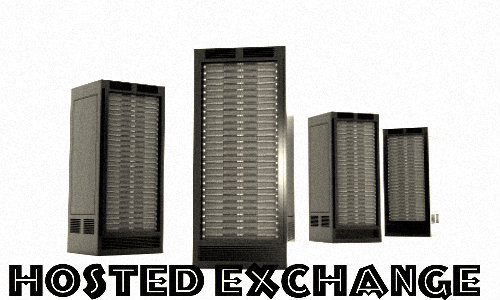
No one would deny that a steady flow of communication is essential for the survival of any company—so much so that electronic communication is as utilitarian as electricity for any business. A Mashable article reports that email takes up 28 percent of the average worker’s day, which is more time spent than in any other business-specific application. In short, the importance of a dependable and efficient email service cannot be understated.
Read: How Secure Is ‘The Cloud’?
Hosted exchange has proven itself as a reliable means for providing such services and is branching out to new clients. Up until this point, hosted exchange was thought of as an email solution primarily geared toward small businesses (SMBs) and mid-sized companies. Now enterprise-level companies are moving email operations to hosted exchange servers to reduce costs and improve email uptime.
What is hosted exchange?
For the uninitiated, hosted exchange is Microsoft’s de facto cloud-based email system. Currently, it’s used by nearly 200 billion users all over the world and offers a wide range of email, calendar and task-management capabilities.
Read: The Benefits of Managed Web Hosting
Read: What You Need to Know about Web Hosting
Why enterprise companies are using cloud-based email providers
The goal of any service provider is to ensure that their service is available 100 percent of the time, and large-scale companies haven’t been experiencing that kind of availability with on-premise email applications. Consequently, they’re moving away from those kinds of systems and adopting cloud-based providers. In fact, according to a report by Osterman Research, cloud-hosted email is expected to jump from roughly 13 percent to well over 18 percent of the enterprise-level usage by 2014. This is largely because hosted exchange servers offer a high level of uptime at an affordable price.
The problems with on-premise email
Although plenty of convincing arguments can be made for on-premise email systems, most of them fall flat when you start talking about functionality, affordability and scalability. The truth is, whether some companies are willing to admit it or not, ton-premise email applications pose a variety of difficulties. They’re complex, hard to manage and incredibly expensive to maintain.
The benefits of hosted exchange servers
Hosted exchange offers a variety of advantages, but here are two main benefits:
- Reduced downtime: Since hosted exchange requires fewer IT resources, it ensures a higher level of uptime. This is also largely due to the fact that hosted exchange servers are designed to prevent fail-over and crippling email downtime, allowing your IT team to handle other tasks.
- Cost effective: Perhaps the most impressive aspect of hosted exchange is its cost-effective structure. A Rackspace report indicates that companies with 1,000 or more users experienced cost savings on a per-user basis of over 56 percent. Beyond that, with a cloud-based email solution, a company can expect predictable costs associated with email applications without any surprises.
Improved email = improved business productivity
It’s fair to say that email suffers from certain inefficiencies, and when an email server goes down, it affects your business. A secure and dependable email system with total mobility is a requirement for any organization, and hosted exchange fulfils those requirements. Its affordability and consistency make it a great choice for large-scale operations with large-scale email requirements.